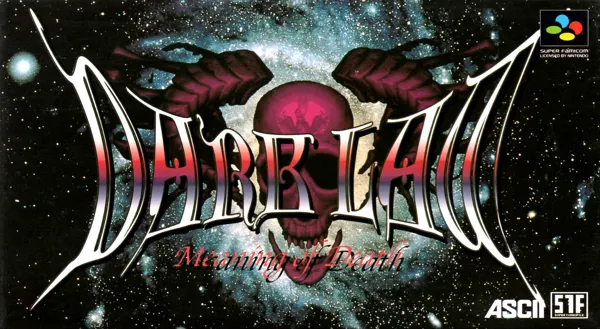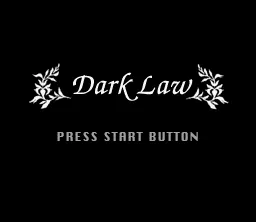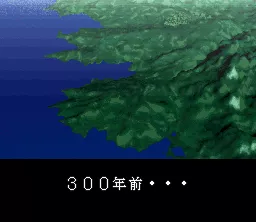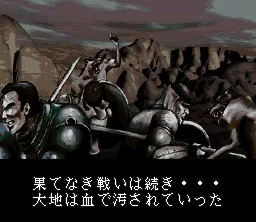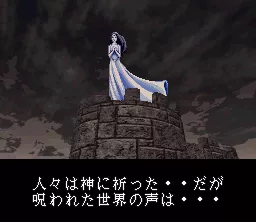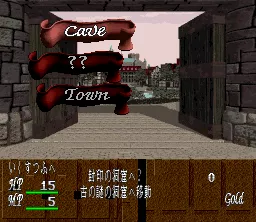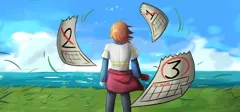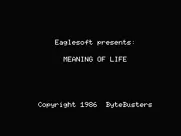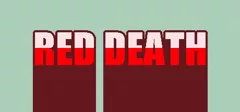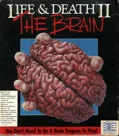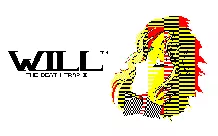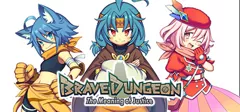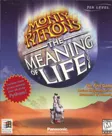Dark Law: Meaning of Death
Description
Three-hundred years ago, there were two kingdoms on the earth - Reyfore, ruled by the benevolent and mighty king Reynard, and Amugnon, ruled by king Daruk. The two kingdoms could have lived in peace, but pride took over king Daruk, he didn't respect the Goddess any more, and as a result his mind became obsessed by the idea of destruction. Daruk attacked Reyfore, and for decades war was embracing the two kingdoms, setting the Earth in flames. After a prolonged battle, king Reynard defeated king Daruk, and a reign of prosperity began once again.
But can evil be truly defeated? The hero of the game, a young adventurer, falls down from a cliff while taking a stroll near the ancient Sophia Temple. He is saved by an old man who lives with his daughter Refia in a small country house. But one day, a demonic-looking knight appears, accompanied by monsters, kills the old man, and kidnaps Refia. The old man recognized the knight - it was king Daruk! Now the hero must bring Refia back and defeat Daruk once and for all.
The game has a less linear structure than a standard Japanese-style RPG: together with the main story there are many missions, or "scenarios", which are not obligatory to complete, but which occupy a large portion of the game. In the beginning of the game you create a party of four characters, the hero and his three companions. The battles are pre-determined and take place on the same screen as the gameworld itself. Your party and the enemies can move freely around the screen and attack with melee and ranged weapons, and their actions depend on the amount of action points they have. Navigation in town is menu-based.
Spellings
- ダークロウ ミーニング・オブ・デス - Japanese spelling
Groups +
Screenshots
Credits (SNES version)
43 People (27 developers, 16 thanks) · View all
| Direct | |
| Scenario | |
| Produce | |
| CoProduce | |
| Sales Promote |
|
| Sound Produce |
|
| Compose |
|
| Sound Effect |
|
| Sales Department | |
| Graphics (Scenario Map & C.G.) | |
| Character Design | |
| Program |
|
| [ full credits ] | |
Reviews
Players
Average score: 3.5 out of 5 (based on 1 ratings)
Tabletop RPG with JRPG elements that plays like an adventure game
The Good
Dark Law is rather non-traditional JRPG on the Super Famicom as it focuses more on exploration and storytelling rather than combat. It's the last game in a "trilogy" of games with similar themes and mechanics, the two previous games being Dark Lord for the Famicom and Wizap! for the Super Famicom.
Like it's predecessors Dark Law is way less linear than your typical Japanese-style RPGs. In some ways it reminds me of SSI's Phantasie games. Dark Law doesn't have a single linear path along which the player is forced. Though the main plot might sound cliché on paper, its structured in an interesting way, as the story is told through a series of short stories ("scenarios"). They may seem standalone at first but it all ties together neatly by the end. And like the subtitle (Meaning of Death) hints, each chapter has something to do with death and generally tackles mature themes like dealing with the death of a loved one and moving on.
Quests are obtained in town and correspond to the level of your lead character. Each scenario is a short quest which the player can complete to advance the story and build up experience. Most scenarios have little to no mandatory fights and play much more like a classic adventure game, without the point and clicking, obviously but with plenty of puzzle solving. The puzzles themselves are pretty logical, turning valves in the right order, etc. In particular the wine bottles puzzle in scenario 9 was quite clever in my opinion. There's even a built-in hint system (Rest->Info) in case you get stuck. But here's the thing, if you want you can abandon scenarios or don't do them at all and instead gain experience and level up in the sealed cave/labyrinth which has 10 floors and tons of monster of increasing difficulty. The end goal is to fight the evil King Daruk when you're at level 13 or above, how you get there is up to you. The replay value certainly is good, there's a couple of choices you will have to make during the game that effect the outcome (there are five different endings).
You start by creating a party of 1-4 characters, of which any three can be in your party at one time. While the men are stronger, they need more experience to gain each level, the two female characters gain levels faster (less EXP required). The job system is pretty varied, there are 27 jobs in total, each gives you one or two skills. Only a couple jobs are available right at the start with more becoming available if your character's stats meet certain requirements and/or you have already acquired specific skills. For example, to get Monk you need dexterity: 8, intelligence: 11, luck: 9, while Knight takes strength: 17, avoid force: 15, intelligence: 11, quickness: 12 plus requires the Jump and Sword Master skills.
The 18 skills you can acquire varies in their usage, some can be used in combat (like the various sword skills), others - while traversing the game world (jump, unlock). For example, most treasure chests are behind locked doors, so you will either need to learn the Unlock skill or you can try to guess a 2-4 digit code. But you can't just use the weapons/items you found in them straightaway, you'll have to identify them first by either taking them to a shop where it will be done for a fee or get the Judgement skill. However sometimes you'll make mistakes and become cursed and that's where the Dispel skill comes in handy. Unlike Dark Lord, there is no cap here on how many skills one character can learn.
Combat is like in a tactical RPG and plays similarly to Dark Lord. Battles are turn based and each character can be moved around individually. Your movement range depends on your AP (based on your Agility stat). Your character(s) can walk up to the monsters and melee attack as well as use items and magic. With bow and attack magic such as Fireball you can also attack from a position away from the enemy.
The magic system is pretty interesting as well. You're presented with a grid of 18 stones (initially 15, the remaining 3 you have to find), and you can create a formula of up to five stones (you can use the same one more than once). The stones themselves are divided into 4 types: Aspect (Earth, Water, Fire, Wind), State (Liquefaction, Vaporization, Solidification, Division), Medium (Sword, Armour, Shield, Feather, Horn, Blood, Bone, Flesh) and Chaos (Thunder, Heaven). If you buy Fireball at the Magic Guild it will cost you 160, but if you research it, it costs just 12 gold.
Naturally for a 1997 Super Famicom game the graphics are good, featuring big sprites and nice pixel art. It's also one of the very few games that run in SNES hi-res (512x448) mode. Though the backgrounds in town clash with the overall aesthetics as they appear to be pre-rendered (which was all the rage around the time this game came out).
Also a bar takes up roughly one third of the screen. At least the color of it can be changed as there are 7 window styles.
The soundtrack provides both peaceful and rocking tunes, however there's not a lot of music tracks overall so it will get a bit repetitive.
The Bad
The start is quite brutal, you're short on money thus under-equipped, low on HP and don't know any magic. Many early enemies can downright slaughter your party so don't be afraid to use L+R to escape from battles and save wherever you can. The tabletop RPG approach also means there's going to be plenty of random elements in the game, meaning a lot of stuff is down to pure luck. Hell, there's even a "Luck Shuffle" option in the settings.
The effects of leveling up, beyond the obvious HP and MP increases, are random - a character can gain or even lose a point in each of his/her stats or learn a skill or two.
In the third scenario you'll run into Eleanor Zombie. She has a spell that can kill your entire party in a single turn.
However, she doesn't always use magic right at the start so you will just have to keep reloading over and over until she doesn't use a magic attack on her first turn. Very frustrating!
It doesn't help that early on the battles tend to become tedious affairs where you're going to end up constantly trading hits of 1 damage. Another aspect that greatly contributes to the slow battle pace is that combat messages are on by default. What seems like remnants from western first person dungeon crawlers, they report everything that goes on, showing a lot of redundant information like: "Oak jelly attacked with its sharp claws!", "Player unleashed a lethal blow!" and so on. Luckily the combat messages can be turned off in the configuration menu but every time you load the game you will have to set them off again as it doesn't seem to save that particular setting. The AI itself is hardly something worth writing home about. Sometimes they will only react to you if you're in their range, other times they just seem to start aimlessly wandering around, paying no attention to you. And in areas with different elevation, instead of using the stairs/slope they will just try to get to you by the most direct route which of course means rubbing against cliffs/walls and becoming easy targets for bow users.
A problem that Dark Law inherits from its predecessor is that a lot of important things aren't explained in-game at all. I can only assume the game's mechanics are explained in the manual. But still, while in a game like Chrono Trigger the mayor's house at the start is dedicated to explaining how the various mechanics work, here you're left on your own to figure out a lot of important things. That resting at a save point restores some hp or how the job system works. For example, to use magic you need to learn the scroll ability and believe me, when you get to scenario 5 you'll get slaughtered by the zombies if you don't have fire-based spells. However the guild where you can choose the jobs doesn't have a single word on what job gives you what skill, it only mentions the income. Similarly you're going to find weapons/accessories that you can't equip and no explanation which job you need to be able to use them. A minor gripe but when buying armor you can only see the offensive & defensive strengths and not the weight, in other words - how equipping certain armour or shield will effect agility.
The cave/labyrinth has some 4-5 rooms that are copy-pasted all over for a very samey look. And as there's no auto map feature here, navigating the ten floors with several similar looking rooms can become confusing. And though the interface has been greatly improved compared to Dark Lord, there were some features that were quite useful in the first game but have been removed in this game. For example, in Dark Lord the select button changed the party order which was very useful if your lead character (the one in front needed a specific skill) here the select button isn't used at all, instead you have to go in the settings.
Though Dark Law is a much longer game than Dark Lord which could be completed in less than 10 hours, it still feels too short as some of the best skills you're most likely going to acquire only when there's the final boss left.
The Bottom Line
Dark Law ain't for everyone, at first it seems to tick all the wrong boxes: tedious, clunky, frustrating, vague, random... you name it.
However if you get around the first impressions and stay with it, looking past its quirks, there's actually a unique game waiting underneath.
Completely unlike any other RPG on the system - extremely rewarding.
And there's a good English fan-translation by Aeon Genesis. Just make sure you do your homework and read up about how the job system works and what the various skills do before playing the game to save frustration. Make no mistake about it - this game demands planning ahead.
For a different fusion of Western RPGs and JRPGs also try the SaGa series. Three of them are on the Super Famicom and Romancing SaGa 3 even has an English fan-translation.
SNES · by Infernos (44174) · 2015
Trivia
Translation
An unofficial English translation was released in patch form in 2007.
Analytics
Upgrade to MobyPro to view research rankings!
Identifiers +
Contribute
Are you familiar with this game? Help document and preserve this entry in video game history! If your contribution is approved, you will earn points and be credited as a contributor.
Contributors to this Entry
Game added by Unicorn Lynx.
Additional contributors: Trypticon, Rik Hideto.
Game added July 1, 2004. Last modified August 17, 2023.
